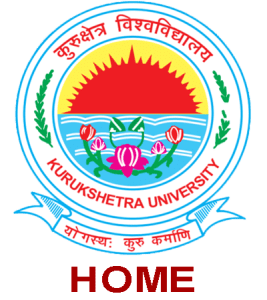Post Graduate
Programme Information(PG)
|
PG |
|
|||
|
Name of the Programme |
M.Sc. Chemistry |
|||
|
Scheme of the programme |
M.Sc. Programme: Two-year (Four semesters) under Choice Based Credit System – OBES / LOCF Pattern |
|||
|
Syllabus |
||||
|
PSO (Programme Specific Outcomes) |
|
|||
|
|
PSO1: The detailed functional knowledge of theoretical concepts and experimental aspects of chemistry.
PSO2: To integrate the gained knowledge with various contemporary and evolving areas in chemical sciences like analytical, synthetic, pharmaceutical etc.
PSO3: To understand, analyze, plan and implement qualitative as well as quantitative analytical synthetic and phenomenon-based problems in chemical sciences.
PSO4: Provide opportunities to excel in academics, research or Industry.
|
|||
|
PEO (Programme Educational Objectives) |
|
|||
|
|
PEO1: To have fundamental as well as advanced knowledge of the chemistry domain.
PEO2: To provide the professional services to industries, Research organization, in the domain of super specialization.
PEO3: To opt for higher education, disciplinary & multi-disciplinary research and to be a life-long learner.
|
|||
|
PO (Programme Outcomes) |
|
|||
|
|
PO1 |
Knowledge |
Capable of demonstrating comprehensive disciplinary knowledge gained during course of study. |
|
|
|
PO2 |
Research Aptitude |
Capability to ask relevant/ appropriate questions for identifying, formulating and analyzing the research problems and to draw conclusion from the analysis. |
|
|
|
PO3 |
Communication |
Ability to communicate effectively on general and scientific topics with the scientific community and with society at large. |
|
|
|
PO4 |
Problem Solving |
Capability of applying knowledge to solve scientific and other problems. |
|
|
|
PO5 |
Individual and Team Work |
Capable to learn and work effectively as an individual, and as a member or leader in diverse teams, multidisciplinary settings. |
|
|
|
PO6 |
Investigation of Problems |
Ability of critical thinking, analytical reasoning and research based knowledge including design of experiments, analysis and interpretation of data to provide conclusions. |
|
|
|
PO7 |
Modern Tool usage |
Ability to use and learn techniques, skills and modern tools for scientific practices. |
|
|
|
PO8 |
Science and Society |
Ability to apply reasoning to assess the different issues related to society and the consequent responsibilities relevant to the professional scientific practices. |
|
|
|
PO9 |
Life-Long Learning |
Aptitude to apply knowledge and skills that are necessary for participating in learning activities throughout life. |
|
|
|
PO10 |
Ethics |
Capability to identify and apply ethical issues related to one’s work, avoid unethical behaviour such as fabrication of data, committing plagiarism and unbiased truthful actions in all aspects of work. |
|
|
|
PO11 |
Project Management |
Ability to demonstrate knowledge and understanding of the scientific principles and apply these to manage projects. |
|
|
Time Table |
ANNEXURE I |
|||
|
|
||||
|
Facilities |
UV-vis Spectrophotometer, Shimadzu RF-3501 Pc Fluorescence Spectrophotometer, NMR, IR, Cyclic Voltameter, Rotavapour, Conductivity meter, Tensiometer, Flame photometer, DSA5000, AAS, Sonicator, Centrifugation machine, TGA, |
|||

KURUKSHETRA UNIVERSITY, KURUKSHETRA
(‘A+’ Grade, NAAC Accredited, Category-I University)
Copyright © 2020 Kurukshetra University, Kurukshetra. All Rights Reserved.
